Student Blog
Classes
Perspectives of a Post-Professional MA to OTD Student: Amy Yeu ⟩
September 29, 2021, by Global Initiatives Team
Classes Externships International
Su-Min (Amy) Yeu, OTD
By Michelle Plevack
Entry-Level Professional Master’s student
In collaboration with Maggie Chen and Prutha Satpute
Global Initiatives OTDs
Editors Alison Chang, Vanessa Elshamy, and Brittany Inouye
Entry-Level Professional Master’s students
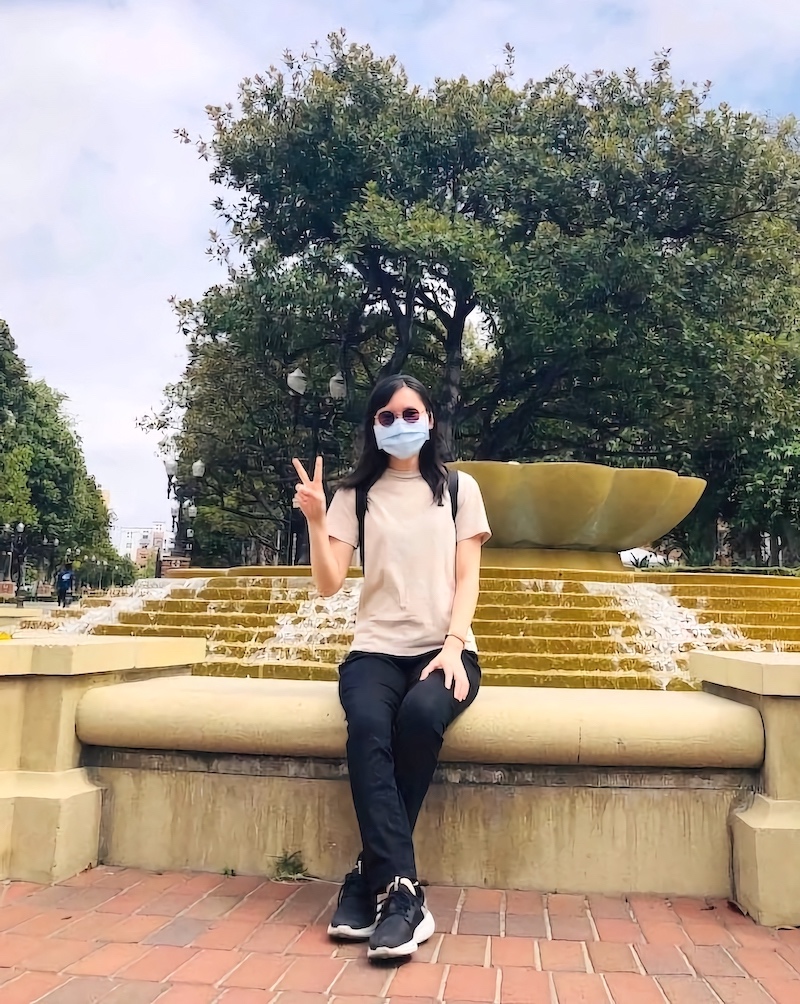
First photo Amy took at USC — OTD, Fall 2021
Global Initiatives OTD Maggie Chen had the opportunity to interview international student, Su-Min (Amy) Yeu. Michelle Plevack wrote this blog with the purpose of sharing Amy’s perspectives of her transition from USC’s Post-Professional Master’s Program to the Post-Professional Doctorate of Occupational Therapy (OTD) Program.
What are some of the factors that influenced your decision to continue your education with the OTD?
Amy: I considered professional, personal, and program aspects. Professionally, I thought about my future career and my goals. As an international student, I thought about what I was interested in but could not learn in my hometown. For example, I know that OT in the United States focuses on health promotion, an area I am interested in. I also thought about the timeline and pathway that I am going to take in the future. For example, when am I going to do the OTD and how long is the program going to be?
Personally, I hope to return to Taiwan. I also thought: if I am not going to do the OTD, then what am I going to do? Am I going to work in the US or am I going back to Taiwan? I also thought about the difference if I did not have the degree: is it only because I want to earn another credential, or is there anything else that is important to me? Another thing I considered was employment, of course. Like many students, I have concerns about paying tuition and looked into residencies that might offer a scholarship or stipend for me. As far as personal goals, it was important for me to travel abroad and to gain new experiences in the US.
Considering programs, I was interested in non-traditional tracks that focus on health and wellness and international relationships. I know at USC they have clinical, research, administration, and pedagogy tracks. I ended up being placed with the Kortschak Center for Learning and Creativity (KCLC — clinical track) at USC which I am very grateful for, and I know at USC, I can choose to have a subspecialty — in research, for example — that could contribute to my career goals.
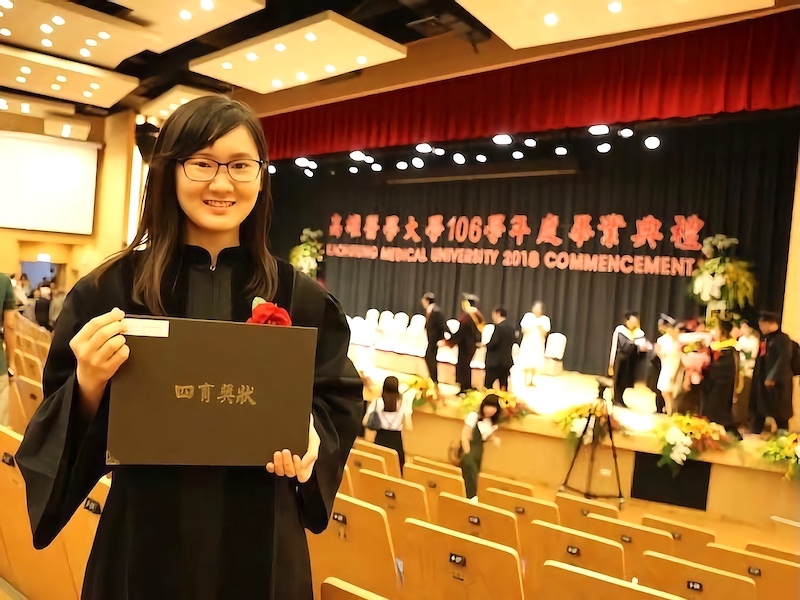
Commencement: Kaohsiung Medical University; Kaohsiung, Taiwan — Senior, 2018
What goals have you set for yourself during your OTD? Why is the OTD beneficial to your future goals and career?
Amy: I want to network and build relationships within the USC community and improve my clinical skills by utilizing my therapeutic use of self, motivational interviewing, and evidence-based knowledge. With these skills, I can not only provide services appropriately, efficiently, and holistically to all students, but also appropriately refer students to other services. As I know these services are not currently popular in Taiwan, I hope to show the efficacy of the services at KCLC by conveying the unique roles and skills of occupational therapy and academic coaching services in universities. My future goal is to improve the quality of life of university students in Taiwan, particularly as a result of the COVID-19 pandemic, by implementing and developing novel ideas into on campus services. I believe having a doctorate level of education at international conferences will allow me to effectively advocate for essential services and pioneer the roles of OTs working in universities.
How has the transition from Post-Professional MA to OTD been?
Amy: This transition looks different depending on what track you are taking. For my clinical track, I spend most of my time in my residency at 20 or 40 hours a week. Compared to being an Post-Professional MA student, your role changes as an OTD student, as you are ‘in the driver’s seat’ where you need to be self-directed, proactive, and create your own structure to support your goals. However, because I am more settled into my role after the MA program, I feel less anxious and confused, and even excited about my coursework. Consequently, compared to being an MA student, there are fewer social opportunities with peers due to the nature of the coursework for the OTD program.
What has been the best and hardest part of the OTD so far?
Amy: The best part is my residency — I feel like I am seeing the endless possibilities of occupational therapy. There have been so many opportunities during the process of integrating my knowledge, experiences, and passions in a way where I am ‘learning by doing’. I get to wake up excitedly, not only because of schoolwork, but also because I am pursuing my dreams while collaborating with people who share the same goals, values, and beliefs. Some difficult aspects of the OTD for me as an international student are the language and cultural barriers, particularly while sharing thoughts. I am still figuring out how to provide services and express my perspectives with the KCLC team in an effective and efficient manner. Due to the cultural differences between myself, clients, and peers, I am also not always familiar with a place or experience they might reference to. Finally, learning to be more flexible due to the uncertainties of the pandemic, such as adjusting to hybrid services, has been a challenging transition as well.
How have you been balancing leisure and personal time with OTD responsibilities?
Amy: I try to be patient and kind to myself. Luckily, I work in a residency that promotes the importance of work-life balance and recommends us to not bring work home. I also try to focus on self-care activities, setting up short breaks, making time for myself, journaling, having snacks, listening to music, catching up with family, and socializing with friends on weekends.
What advice would you give to students about the OTD?
Amy: For those indecisive about the OTD, I would recommend connecting with professors, residents, and other peers who are interested in discussing the OTD. In my experience as a MA student, it can be hard to decide one month into the program if the OTD is right for you. And even though I am very satisfied with my residency, I regret not applying to even more sites! Remember that post-graduation, you do not need to stick to whatever you do for your OTD. If you are planning on doing the OTD, consider what you want to get out of this program. You won’t regret it! Keep dreaming big! Jot down your thoughts, journal, and think deeper. Remember there are no restrictions with what you can do with an OT background. Consider being open to roles or positions not necessarily called OT if they relate to your passions.
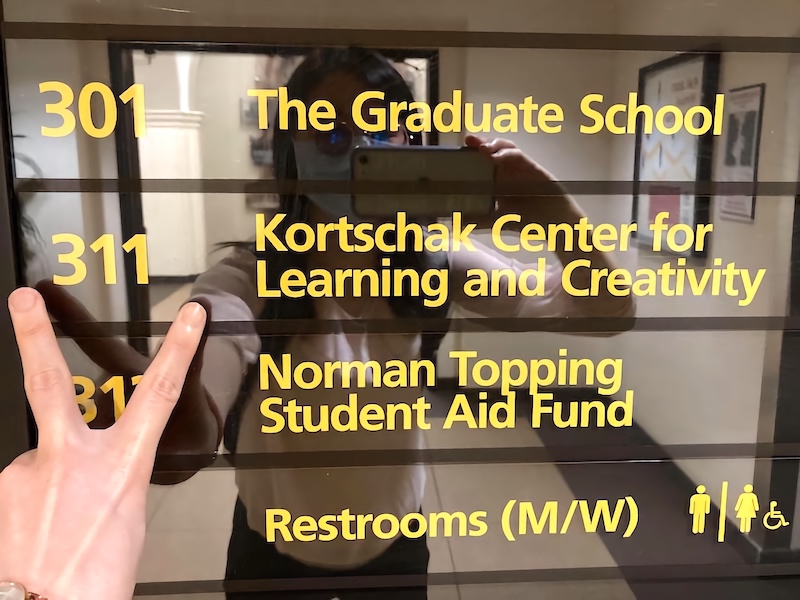
Amy’s residency: USC Kortschak Center for Learning and Creativity; Los Angeles — OTD, 2021
⋯
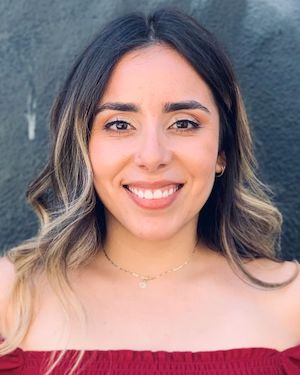
Dear Zoom, it wasn’t you ⟩
September 14, 2021, by Silvia
Classes Living in LA
I’m just going to say it — I miss Zoom University.
Zoom University and I had a toxic relationship and although it wasn’t my first, it certainly is the only one I miss. Sometimes you really “don’t know what you have till it’s gone.” Don’t get me wrong; I love being on campus, seeing all my beautiful friends, and making real-life connections with my professors, pero like*. . . it’s hard out here.
Before making the transition back to in-person classes, after over a year of Zoom, I never truly realized or acknowledged how much work it takes to be an occupational being, aka a student. Let’s just consider some of the things that we didn’t have to do when Zoom was part of our lives (or at least my life):
- Get ready in the morning (if you still did this, I am proud of you and I admire you)
- Prep lunch
- Pack bag(s)
- Leave the house
- Drive to campus
- Find parking
- Walk to class
- Sit in class
- Actually pay attention in class (R.I.P mute and camera functions)
- Socialize
I’m sorry, but the fact that I can’t get up and walk to my fridge for a quick snack or mute myself/turn my camera off and lay down on my bed for a second is rude. Also, do you know how intense my phobia of getting stuck in LA traffic on a school morning is? Ok never-mind the phobia, have you seen those gas prices? Seriously though, transitioning back to in-person classes has been quite an adjustment that I wasn’t fully prepared for.
As much as I hated being confined to Zoom at home, I had a greater sense of control over my entire school experience and I loved that about our relationship. I didn’t have to worry about traffic, whether or not I would find a parking spot, or being late for that matter. I could monitor the sound level, air temperature, light intensity, number of guests—basically everything that I have absolutely no control over in the underground lecture hall, G 37. G 37 induces sensory overload in my body and exhausts me; it makes me reminisce the good times with Zoom.
I feel guilty for hating Zoom so much when all it did was love me and be there for me through the hard times, aka the pandemic. Yes, it gave me migraines and worsened my vision, but it also let me sleep in, eat during class, lay down between lectures, and spend my money on things other than gas. If I am being honest, it wasn’t Zoom, it was me. I was so upset and stuck on the idea of being “robbed” from my graduate school experience that I didn’t value or appreciate all the good things Zoom had to offer. I thought I was ready to move on—to be 100% back in-person and on campus—but what the heart wants is not always what the body wants or needs. While my heart is happy to finally see and meet my cohort and class in real life instead of a square on a computer screen, my body is tired and needs time to adjust.
I know I am not the only one feeling this way, and I just want you to know that you have permission to miss Zoom too. Listen to your body, allow it to rest and recharge as it adjusts to yet another change.
*Common Spanglish phrase meaning “but like”
⋯
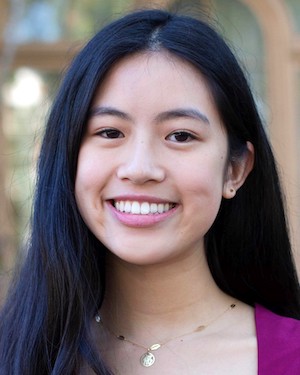
What I wish I knew before taking the “Foundations” courses: Part 2 ⟩
June 24, 2021, by Arianna
Classes Life Hacks
Hello again! Here is the second part of my last blog. I hope this mini-series gives the Entry-Level MA students some study tips for their next exam. In this blog, I will talk about Neuroscience and Creativity, Craft and Activity Analysis!
Foundations: Neuroscience:
Neuroscience was slightly easier than Kinesiology for me because I have a pretty decent background in Psychology and Cognitive Science. However, we did cover a LOT of information in this class. Nonetheless, Dr. Persson is such a lovely professor to be around so I’m sure you will have a great time learning about the nervous system!
- Tip #1: Make a study guide ASAP.
Eventually, Dr. Persson will post a study guide for each unit. I suggest downloading that study guide and filling it out as you cover the content in class. This will save you a LOT of time when you are studying, and it will help you focus your attention on the important information. But please don’t disregard the information that is not on the study guide. Everything you learn in this class will come up in your life whether it be on the exam, or with a future client. As my Physiology professor once said, “If you don’t want to study for your own benefit, study for the benefit of your future patients”.
- Tip #2: Watch YouTube videos about each topic.
Some of the concepts you learn about in this class are hard to understand without the assistance of videos. For example, I watched the same video of neural tube formation probably 6-8 times before I was confident enough to move on. (Here’s the
link if you were interested.)
Actually, I think I’ll just link all of my go-to videos!
In my opinion, these topics are difficult to learn about on paper, so I recommend watching some videos to help you gain a more comprehensive understanding of each concept.
- Tip #3: Study with real-life examples.
You will be learning about many different conditions and disabilities in this class and it can be hard to keep track of each individual disability. I guess this tip is pretty similar to the last tip but I suggest looking up “Living with ______” when you are studying disabilities. Hearing the story from a real person and watching how the disability affects their daily life is a lot more memorable than reading bullet points off a slide.
Foundations: Creativity, Craft and Activity Analysis
I can’t lie, this class was the most fun out of the 4 Foundations courses. However, I might be a little biased because Crafts was the only class I had in person. Towards the end of the semester, we started having in person Crafts a few times a month which made this class stand out from the others. In my opinion, this class is not stressful. In fact, it is the exact opposite! Being able to relax and create things with my hands for three hours once a week allowed me to unwind and forget my worries. Therefore, I don’t have many study tips, but I do have some advice!
- Tip #1: Fully immerse yourself in the activity.
When I first started this class, I had a hard time letting myself relax and enjoy the moment when we were crafting. As you all probably know, being a full time student can be overwhelming. I did not want to allow myself to relax because I felt guilty for not studying. Although you may feel this way at times, please enjoy yourself and have fun with this unique opportunity to make art in class! During this course, I decided I would put my entire heart into it because I wanted to find a new favorite occupation. I eventually realized how happy I was when I crafted, and decided to pick up nail art as a hobby.
- Tip #2: Get a head start on your final essay.
I would get a head start on your final essay if possible. When I was in the class, Dr. Dieterle posted the prompt for the final essay a few weeks before it was due. I ended up writing it that weekend because I had 2 other finals on the same day the final essay was due! Hopefully none of you have 3 finals on one day, but you will be thanking yourself for getting a headstart on your work when exams start to pile up.
- Tip #3 Take notes during guest speaker presentations.
This might be obvious but you should take lots of notes during the guest speaker presentations! I’m not sure if you have to write Guest Speaker Reflections, but if you do, it will be helpful to take ample notes during the presentation so you have plenty of topics to write about in your reflection. As a bonus, these notes might be a source of inspiration for you in your future career!
That was my last tip for the blog. I hope you enjoyed this mini-series and found this advice helpful. If you have any questions, feel free to reach out to me at .(JavaScript must be enabled to view this email address).
Thank you for tuning in!
⋯

What I wish I knew before taking the “Foundations” courses: Part 1 ⟩
June 18, 2021, by Arianna
Classes Life Hacks
Throughout my Junior year, I took the four “Foundations” for occupational therapy courses: Occupation, Kinesiology, Neuroscience, and Creativity, Craft and Activity Analysis. These were some of my favorite classes because I got to know my future professors, I spent more time with the 12 students in my cohort, and I learned material that will support me in my future career as an OT.
By the time this blog is up, the Entry-Level MA students will be finishing their first week of classes, and as some of you may know, they are taking the same four Foundations courses that the BS-MA students took this past year! So, fellow future classmates, this blog is for you 😊 . I’ll be writing tips and advice for each class so keep reading if you want some pointers!
Disclaimer: I’m not sure if the structure of the summer classes is the same as the classes I took. Hopefully it is but if not, I hope you can still gain something helpful from this blog!
Foundations: Kinesiology
In my opinion, Kinesiology was the most challenging Foundations course BUT at the same time it was the class I gained the most from. If you loved anatomy, I think you will enjoy this class as well!
- Tip #1: Use the “Complete Anatomy” app to study
If you don’t have this app already, sign into your USC email and click this link: https://libguides.usc.edu/c.php?g=293713&p=1956412. It will give you access to a FREE lifetime membership to Complete Anatomy! This app is great because it allows you to isolate each muscle and watch them in motion. Seeing how the muscles shortened and lengthened really helped me form a better understanding of the function of each muscle, which in turn helped me memorize the prime actions!
- Tip #2: Get up and move during the test!
Although a normal professor would not appreciate their students standing up and moving around during an exam, Dr. Sopkin encouraged the exact opposite! During the tests, it was SO helpful to act out the different actions of each muscle with my own body. For example, if I couldn’t remember the actions of my anterior deltoid, I would just swing my arm around and note which movements required the use of that muscle. I believe your professor is Dr. Rafeedie this summer, but I think she will also encourage you to do the same.
- Tip# 3: Make empty muscle charts
Pretty soon, all of you will be very familiar with the term “muscle charts”. Once you get these charts, I recommend organizing them by unit, and making a blank version of each chart in Google Docs. When it’s time to study for the exam, pull out your empty muscle charts and fill them in until you can do it from memory. Although the amount of content you need to memorize seems intimidating, if you start memorizing the muscle charts as soon as you get them, you will do just fine.
- Tip # 4: Create acronyms for force couples
Sooner or later, you will learn about force couples, and these can be hard to remember at times, especially when there are multiple in each unit. Acronyms always make memorizing easier for me. Here’s one acronym I made that I remember off the top of my head: SLT (Some Lettuce and Tomatoes). S=Subscapularis, L=Latissimus dorsi, T=Teres major. Together, these muscles aDduct the shoulder. How I remembered this force couple was: AD(d) Some Lettuce and Tomatoes. Lol.
Foundations: Occupation
For everyone who loves history, this class might be your favorite! Being completely honest, this class wasn’t as stressful as Kines. It is largely discussion based, and I was a history nerd in high school so this class was right up my alley.
- Tip #1: Start making a “timeline”
I apologize in advance if you do not have to make a timeline at the end of the summer, but I would start taking notes on 1-2 important figures in each chapter and 1-2 important events. These are facts that you should be writing down regardless, but taking these notes may just help you get a head start on your final project.
- Tip #2: Use the app “Speechify”
If you watched my Instagram takeover a while back, you probably heard me talk about the text-to-speech app, “Speechify”! When I was in Foundations: Occupations, we had a lot of heavy reading. I can’t lie, long and dense readings take me forever to complete because I somehow always manage to read without processing anything. As a result, I have to go back and read the same sentence over and over again until I can comprehend it. When I discovered Speechify, I was able to get through the reedings a lot faster! I am an auditory learner, so listening to the readings made it much easier for me to stay focused.
This blog is getting long so I’ll have to make 2 parts! Come back next Friday for more tips; I’ll be talking about Neuroscience and Creativity, Craft and Activity Analysis!
⋯
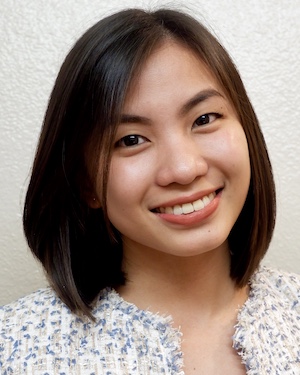
I Don’t Say This Every Day But . . . ⟩
May 7, 2021, by Yna
Beginnings and Endings Classes Diversity International
We spent how many hours on Zoom every day for 9 months, yet it wasn’t until the last day of classes when I realized just how much I’m going to miss my MA1 classmates. What we thought was only going to be a temporary virtual learning setup has been stretched to a whole academic year. Even though this was surely nothing close to how we imagined going through graduate school, still, for some reason, it went our way because we are finishing in A WEEK! It just weirdly feels a little short. I’m still at a loss for words, just like how I was when I was trying to write my very first blog. What words could possibly capture how great of an adventure it has been?
A couple of months ago we were all just a bunch of strangers trying to find a place in this new world. It’s one thing to find acceptance; but feeling a sense of belongingness and a feeling of home is a whole different story — one that I’ve found in this wonderful group of people. I have hoped for companionship but what I’ve found is so much more: teamwork, diversity, and nothing but love and support for one another. I’m really so proud of us and all I can think of is — what a time to be in to witness these individuals succeed through challenges! We really embodied that “Fight On!” Trojan spirit, didn’t we? Truly, my experience thus far has been nothing short of amazing because of all the people on the other end of my computer screen. I’m sure you know, but it bears repeating.
Here are some of the unforgettable memories we had in the past year 😊
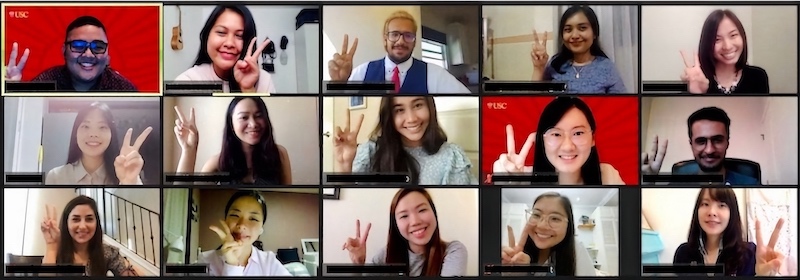
MA1 Virtual White Coat Ceremony
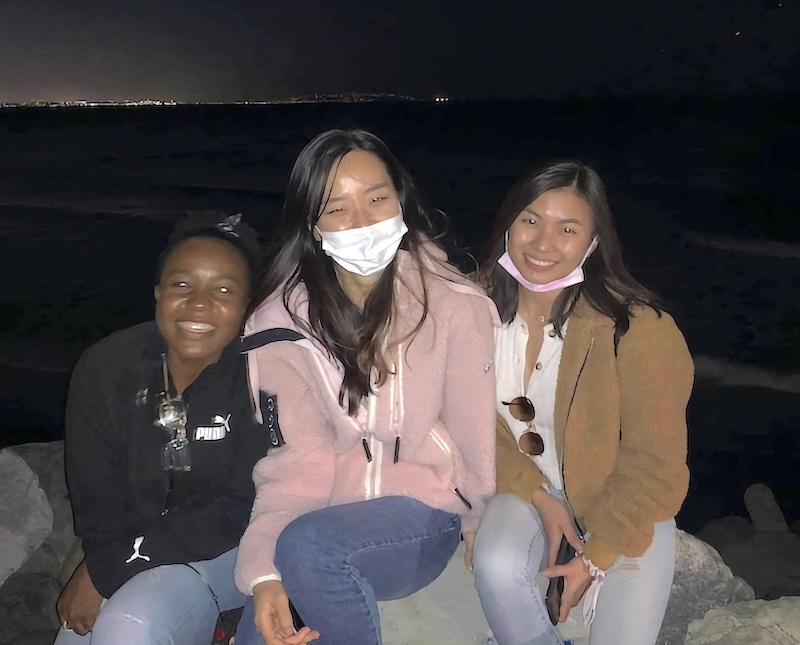
MA1s at the beach
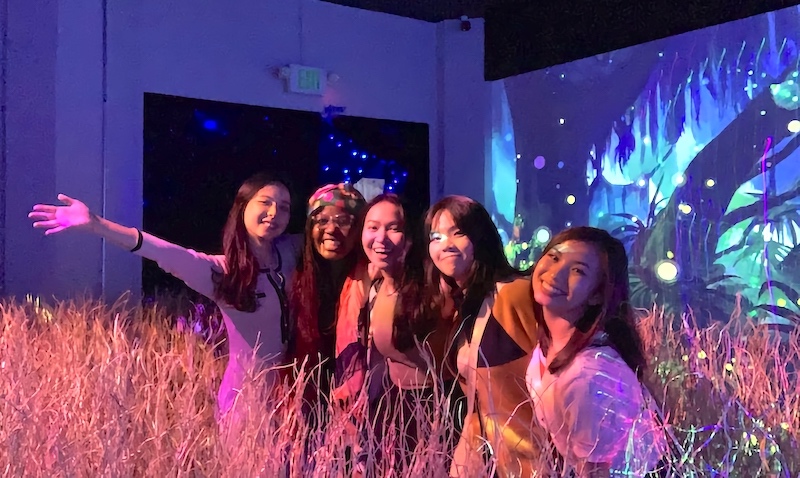
MA1s at the museum
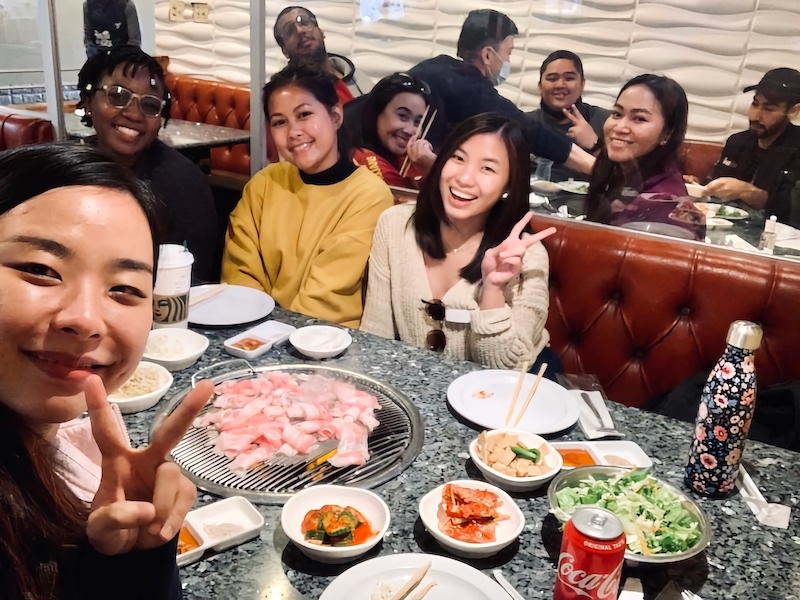
MA1s having Korean BBQ . . . Jisu was not impressed with the food :( LOL 😆
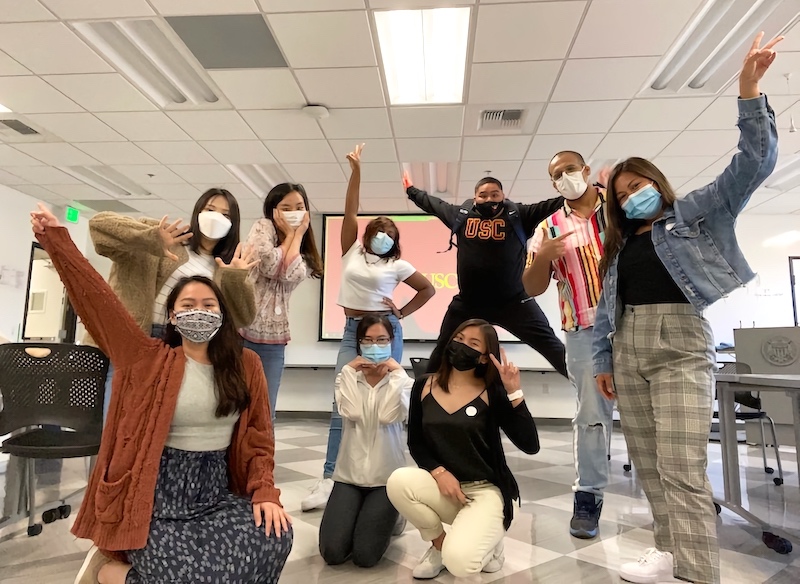
Just happy to have an in-person class!
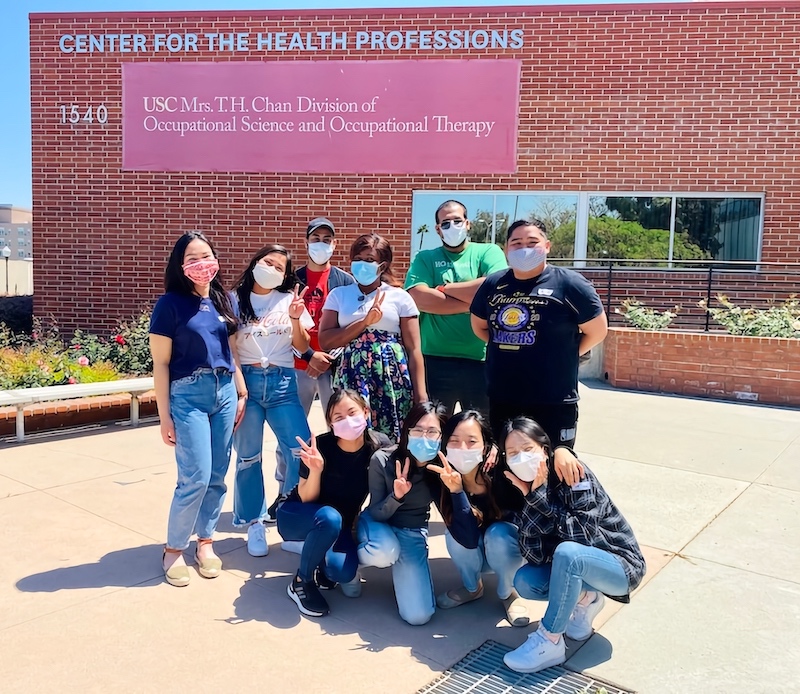
Proudly posing in front of the Chan Division
Of course, my USC Chan experience has been greatly enriched by working with the amazing team of student ambassadors and our supervisor, Kim Kho, who constantly encouraged me to do my best work and really contributed a lot to my growth. I learned A LOT from each and every one of you and I’m so thankful to have been a part of this team!! I also want to thank my dearest family and friends without whom I wouldn’t be where I am today. And to all the readers, it has been a pleasure to be able to share this crazy adventure with you all through my blogs and videos.
Now, I shall go back to studying for my comprehensive exams. After graduation, I will be working with Dr. Daniel Park for the Summer OT Immersion program that is happening on July, so I hope to see some of you there! What’s next after that — I don’t quite know yet; but as always, we Fight On Forever!
All the love and well wishes,
Yna <3
⋯





